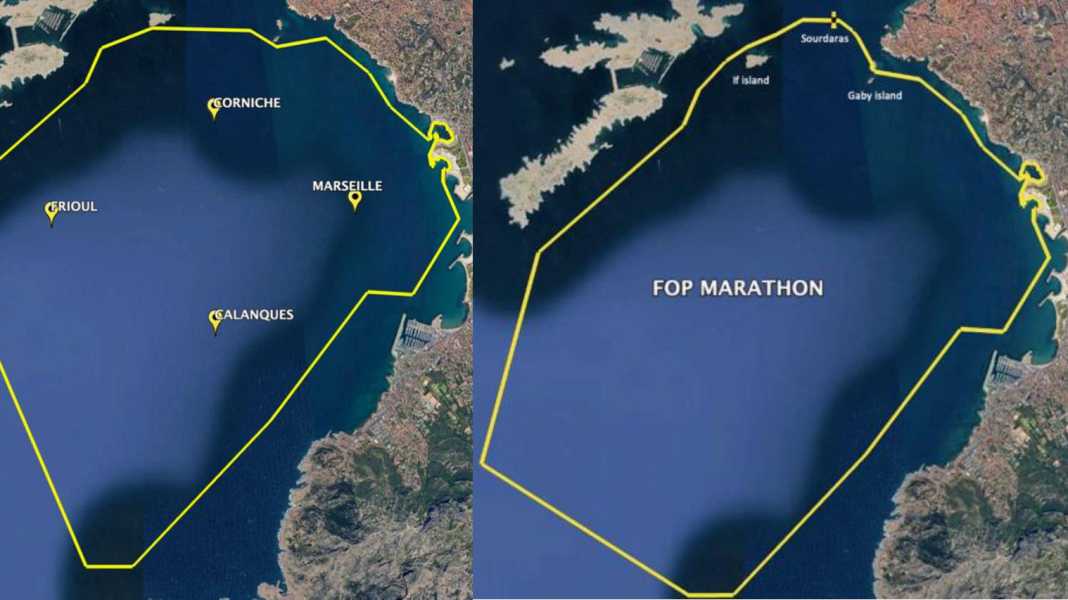
The organisers envisage four courses: The two main courses "Corniche" and "Marseille" are positioned close to land, with "Frioul" and "Calanques" further out. The latter are hardly considered in the pre-allocation, but will come into play more if the wind weakens close to land. As an extra, there will be a marathon course for the iQFoil fields, which will include the entire bay. The athletes have mixed feelings about these rides, which are only planned for the windsurfers. What should be a spectacle for the spectators will challenge the athletes to the maximum as they "fly blind" to the next mark. And the area has even more surprises in store.
What the sailors can expect
The bay of Marseille is one for all-rounders. "With the topography around it, the mountains and the island, it's a complex area. We like this versatility," says Nacra 17 helmsman Paul Kohlhoff. His assessment: "There is wind and waves in Marseille from all directions and in every shape and strength. There's also a current, but it's not as dominant." Everything is possible, from a very light Mediterranean summer breeze to strong winds and a strong mistral. There is a persistent saying among active sailors that many things in Marseille are "left-handed".
Extra hurdle for the kiters
The area could become a brutal challenge, especially for kiters. Because they sometimes have to return to the beach as a result of collisions, breakage or tangled kites and have to get back to the course on their own. Germany's top kiter Leonie Meyer explains the danger: "The wind often doesn't quite reach the shore. If someone has to return to the beach after a collision or with tangled kites, it can be difficult to get back to the next start under their own steam. Normally we wait in our class in such cases, but that will hardly be the case at the Olympics ..."
The Olympic marina
The Olympic harbour on the Mediterranean known as Roucas-Blanc-Marina will be called Marseille-Marina during the Games. Thousands of people will be able to see the sailors, surfers and kiters from the Plages du Prado, at least from a distance. The fact that the Olympic flame reached the Grande Nation by ship in Marseille and the torch relay began here on course for Paris 2024 is just one sign of how the seafaring country is making its sailing harbour an important cornerstone of the Games.
